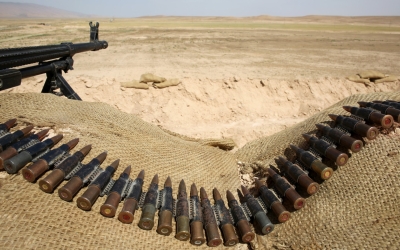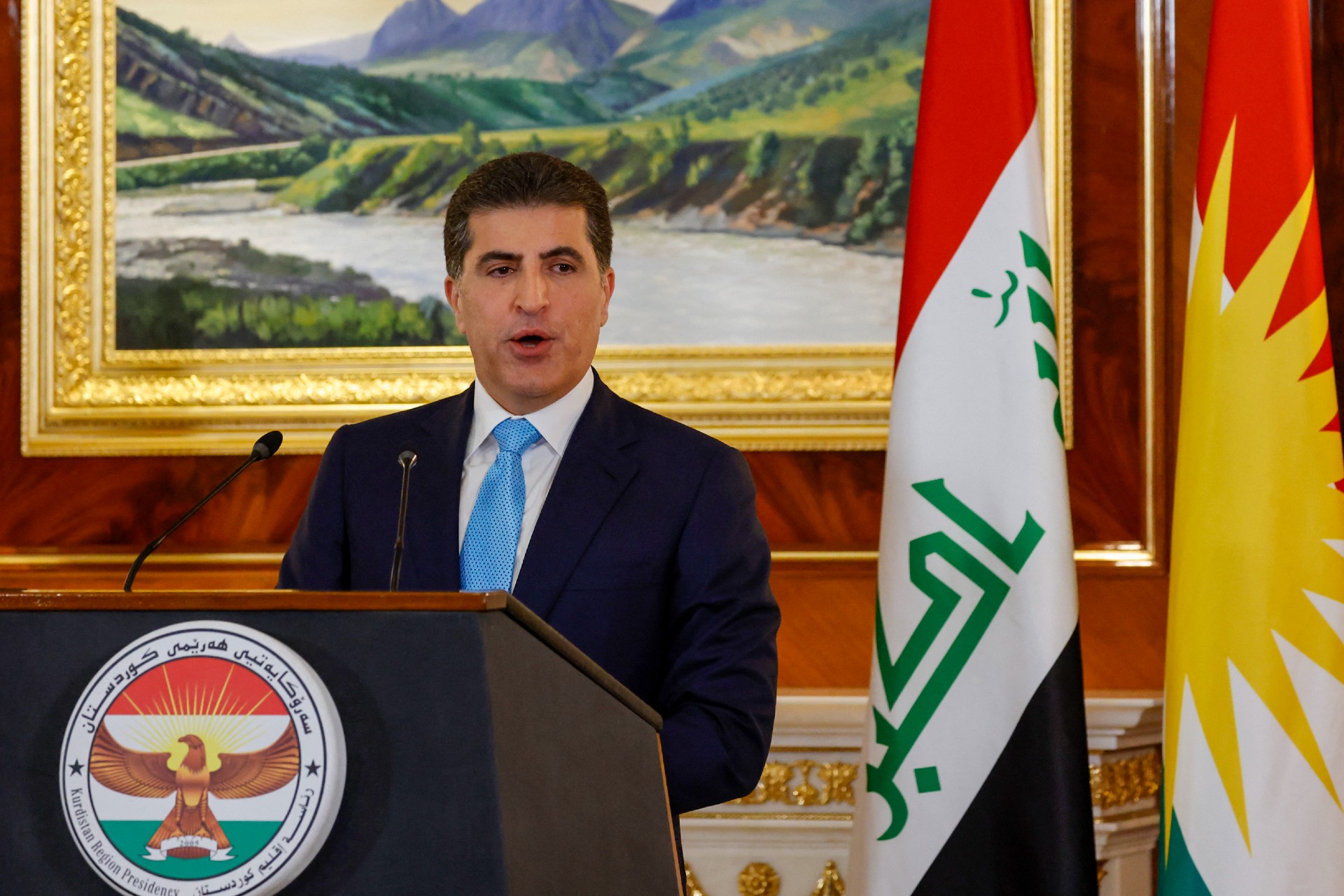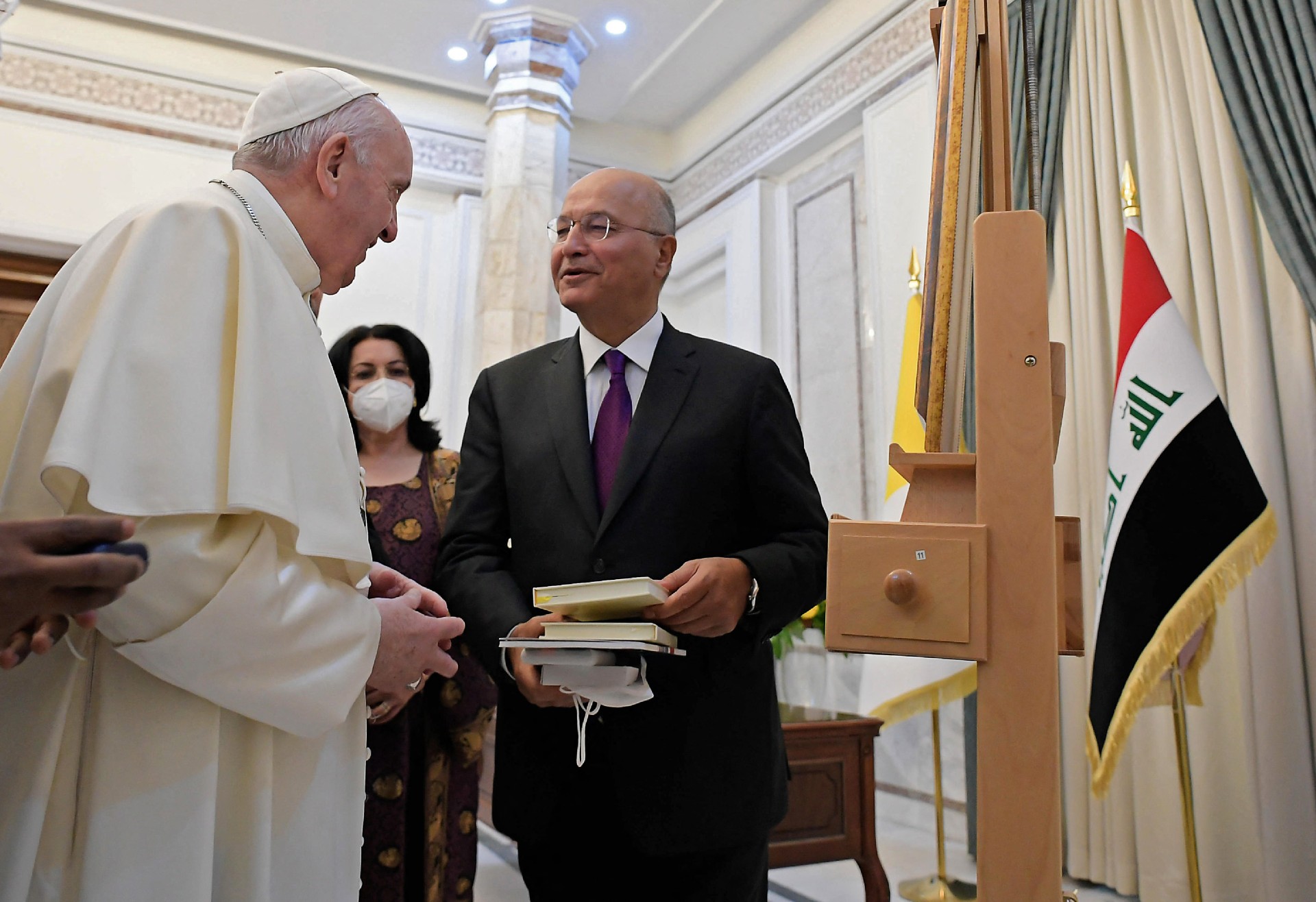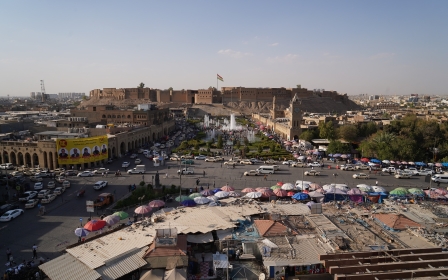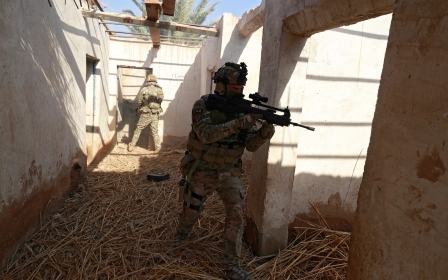Iraq’s KDP isn’t after the presidency. It wants Kirkuk instead
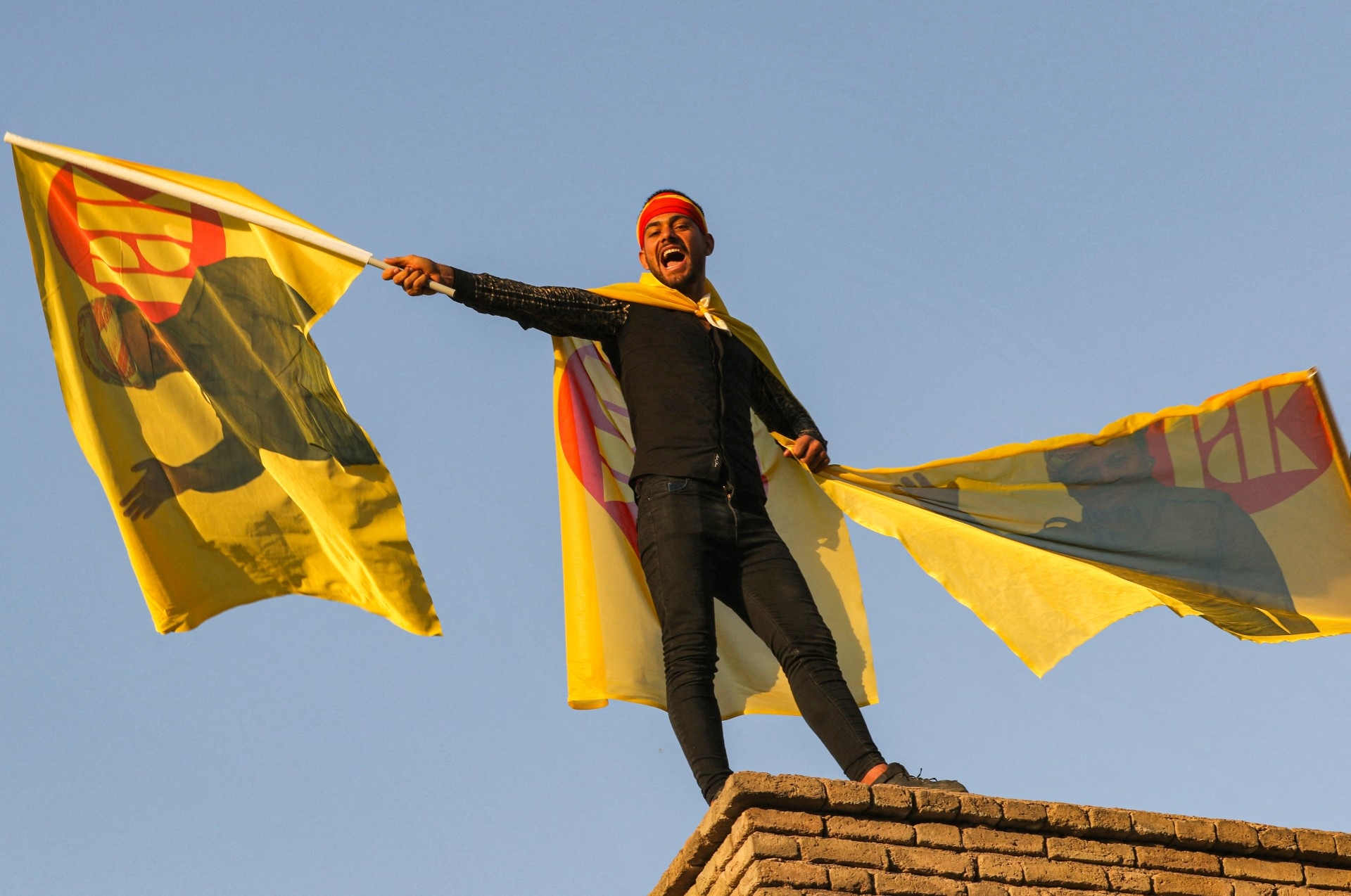
A fierce competition is playing out in Iraq between the two major Kurdish parties – but not over the position of Iraq’s presidency, as it may seem.
Instead, control over the northern oil hub of Kirkuk is the ultimate and unsaid prize that the rivals are jockeying over, Kurdish political leaders told Middle East Eye.
You’d be forgiven for thinking that Baghdad was the city in their sights.
On Monday, a parliament session in the Iraqi capital is scheduled to elect Iraq’s new president, and the Kurdistan Democratic Party (KDP) led by Massoud Barzani, and the Patriotic Union of Kurdistan (PUK) led by Bafel Talabani, are engaged in a frantic competition over the position – which can only be held by a Kurd.
'Who cares about the position of president? The position of the governor of Kirkuk is more important to us'
- Senior KDP leader close to Barzani
Since 2005, a power-sharing agreement has seen the PUK traditionally take the presidency of Iraq and the KDP appoint the president of Iraq’s semi-autonomous Kurdistan region, wielding power from the city of Erbil.
New MEE newsletter: Jerusalem Dispatch
Sign up to get the latest insights and analysis on Israel-Palestine, alongside Turkey Unpacked and other MEE newsletters
But for only the second time, the KDP has disregarded this understanding and begun to compete seriously for the federal presidency.
In 2018, efforts by the KDP’s Fuad Hussein to challenge the PUK’s candidate Barham Salih over the presidency barely got off the ground due to the latter’s widespread support from Shia forces.
This time around, the KDP has allied with Muqtada al-Sadr, the influential cleric whose movement emerged the clear victor of October’s elections.
The KDP now looks like it has a serious chance of snatching the presidency, and the PUK’s position appears increasingly weak.
But political leaders close to Barzani told MEE that the party leadership is not actually interested in the position of the federal president, after all. Rather, their real goal is to regain control over the disputed - and wealthy - area of Kirkuk.
“We are not actually interested in getting the position of federal president. Our competition for this position is a tactical move to pressure the PUK,” a senior KDP leader close to Barzani told MEE.
“We have specific demands. If the PUK pledges to fulfil them, we will withdraw our candidates and leave them the position,” he added.
“Who cares about the position of president? The position of the governor of Kirkuk is more important to us than the position of the presidents of the republic and the parliament.”
Securing Erbil
Kirkuk province, home to the fifth-largest oil field reserves in the world, is the most important and largest area disputed between the Baghdad-based federal government and the Kurdistan Regional Government (KRG).
After 2014, the Kurdish authorities used the chaos of the Islamic State group (IS) invasion and the collapse of the federal security forces to tighten their control over the province.
But subsequent Kurdish attempts to secede from Iraq, culminating in a September 2017 referendum, angered Baghdad and prompted Haider al-Abadi, then Iraqi prime minister, to lead a major military campaign to regain control of the province and other disputed areas nearby. Kurdish forces were pushed back into their constitutionally agreed borders.
The Kurdistan region lost one of its most important financial assets. But KDP leaders told MEE that by losing Kirkuk they also lost strategic control over the surrounding areas.
"The Kirkuk [oil] fields are important, but there is something more important than them. Kirkuk is one of the most important keys to securing Erbil," one of the KDP’s leaders told MEE.
"Erbil is currently at the mercy of the Shia militias, IS, and Iran. It is besieged on three sides. Iran from the east, the militias and IS from the south and north."
Erbil, the capital of the Kurdistan region, has been struck by rocket and drone attacks at least four times over the past year. The most significant of these was in February, when a missile attack targeted a US military base at Erbil airport, killing a civilian contractor and wounding nine Americans.
The Kurdish regional security services said that these attacks were carried out by Iranian-backed Shia armed factions deployed in the provinces of Kirkuk and Mosul.
"We currently do not know what is happening in Kirkuk and we have no control over it. It has become a hotbed for militias and drug-smuggling gangs, and this represents a real threat to Erbil's security and stability," a second KDP leader told MEE.
"Our negotiating team told the PUK’s negotiating team that they should give us a written pledge to ensure that we obtain the position of Kirkuk governor and activate Article 140, and we will give them the position of president."
Article 140 of the Iraqi constitution guarantees Kurdish participation in the management of areas disputed between Baghdad and the KRG until their final status is settled.
Ironically, it was functional until Barzani announced it had expired after his forces seized control of Kirkuk and its surroundings in 2014.
Taking revenge
The KDP and PUK have a history of partnership and occasionally violent rivalry. In the years before the 2017 referendum, the two maintained a workable relationship.
But when the PUK struck a deal with Baghdad and withdrew its forces from Kirkuk when federal troops moved in after the referendum, essentially allowing them to overwhelm the KDP, a sense of betrayal was fostered.
Since then, the KDP leadership has been looking for an opportunity for revenge, Kurdish leaders said.
KRG parliamentary elections were slated for 2020, but the KDP has refused to allow them to be held citing the Covid-19 pandemic. Meanwhile, it has maintained its control of two of the top offices in the region: the presidency, held by Barzani’s nephew Nechirvan, and premiership, taken by his son Masrour.
The PUK leadership hasn’t been left with many options.
"All options are difficult. The leaders of the PUK are confused. They are afraid that they will lose everything inside and outside the region if they accept the KDP’s conditions," one Kurdish leader told MEE.
"On the other hand, a massive army of relatives, advisors, followers, and soldiers will lose their positions and their privileges if the PUK relinquishes the position [of the federal presidency].
"Even if the leaders of the PUK choose to lose the position of president and return to Kurdistan, they will find nothing waiting for them, as the KDP will not allow them to return to participate in the region's government or its presidency."
Buying time
Negotiations between the two teams are “slow and tepid”, Kurdish leaders said.
In an attempt to buy time and place some obstacles in the KDP’s way, Barham Salih, the outgoing president who aspires to get another term, sent an inquiry to the federal supreme court about the quorum required for the presidential selection session and the number of votes required to win.
The court on Thursday replied that the number required for both is 220 MPs, or two-thirds of parliament.
Salih and the forces of the Iranian-backed Shia coordination framework grouping, which includes Sadr’s opponents, are betting on the inability of Sadr and his allies to achieve the quorum needed to hold the session, which would postpone the election of the president and the nomination of the prime minister.
But the Sadrists and the KDP do not seem particularly concerned about this matter
"Achieving a quorum will not be a problem for us. We are not worried about this. Even if all the forces of the coordination framework and the PUK members boycott the session, there will still be about 230 deputies," a Sadrist leader told MEE.
"Even if the quorum is not achieved the first time, it will be achieved in the second or third. These tricks will not work."
Another ruse has been a complaint lodged by two PUK MPs accusing Hoshyar Zebari, the former foreign minister and one of the KDP’s candidates for the presidency, of wasting public money while working in the foreign ministry.
It is expected that the federal court will prevent Zebari from participating in the presidential election session until the investigations are completed, but KDP leaders told MEE that the alternative candidate is ready and registered.
“The leaders of the PUK completely swallowed the bait. The position of the federal president does not concern us,” one KDP leader said, adding that the party would never let its rivals take significant positions in the KRG.
"We have more than one option if the leaders of the PUK reject our conditions. We will go ahead with our competition for the position and we will get it,” the source said.
"Whether or not things go as we planned, the leaders of the PUK will pay a heavy price in the upcoming regional elections."
Middle East Eye delivers independent and unrivalled coverage and analysis of the Middle East, North Africa and beyond. To learn more about republishing this content and the associated fees, please fill out this form. More about MEE can be found here.


